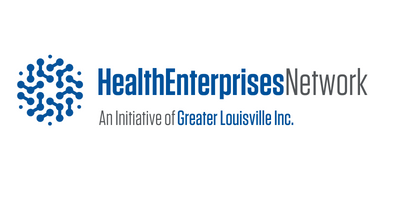Building on UofL Health’s surgical expertise, recent investments in robotics at Jewish Hospital will increase the region’s access to minimally invasive procedures and quicker recovery. Totaling more than $6 million, the new technology includes the da Vinci Xi surgical system, the most advanced da Vinci available, the Monarch Platform, and upgrades to three surgery rooms into state-of-the art cardiac catheterization labs.
“Robotic assisted surgery enhances the skills of our already well-established team and means better outcomes for our patients,” said John Walsh, chief administrative officer, UofL Health – Jewish Hospital. “Innovation is a cornerstone for UofL Health, and while a $6 million investment is significant, it is minimal compared to the impact we will have on quality of life.”
The da Vinci Xi brings with it a first for the region, adding a less invasive heart surgery options for the region’s cardiac patients. As an alternative to open heart surgery, coronary artery bypass, mitral valve repair and more will now only require two small incisions and the assist of robotic controls. By eliminating the need for splitting the breastbone and spreading the ribcage, recovery time is greatly reduced.
“For my patients, this means improved results with less complications,” said Hazaim Alwair, M.D., cardiothoracic surgeon with UofL Physicians. “da Vinci’s robotic precision gives me more control and more access to the heart, so I can repair the heart damage with minimal incisions. That means they get out of the hospital and back to life quicker.”
In addition to cardiothoracic procedures, the da Vinci Xi surgical robot will also be used for: general surgery, urologic, head and neck, colorectal procedures.
Jewish Hospital is now the first in Kentucky to offer the Monarch Platform, a robotic technology used to view deep inside the lungs and obtain tissue samples for biopsy to provide an earlier and more-accurate diagnosis of small and hard-to-reach nodules in the periphery of the lung. Previously these areas of the lungs were only accessible using more invasive methods. Using an endoscopic camera, the Monarch also gives the physician improved reach, control and high-resolution images to build 3-D models of the patient’s own lung anatomy to improve the procedure and treatment plan.
“The Monarch technology gives me greater access to obtain a tissue biopsy from nodules located anywhere in the lungs,” said Victor van Berkel, M.D., Ph.D., cardiothoracic surgeon with UofL Physicians. “With robotic assistance, we are now able to examine areas previously deemed unreachable by conventional methods. It’s a more accurate diagnostic tool and provides my patients more targeted treatments with less risk of infection, less post-operative pain and quicker recovery.”
To accommodate the new technology and growing surgical volumes, major upgrades are also underway to the operating rooms at Jewish Hospital. Three cardiac catheterization labs (cath labs) are undergoing million dollar upgrades to install state of the art technology and better serve our patients.
Each suite will soon utilize the Innova IGS 5 advanced digital X-ray imaging system from GE Healthcare. The IGS 5 generates extremely detailed, real-time images of patient’s cardiac anatomy during procedures that require exacting precision such as guiding catheters and stents.
When renovations are complete, Jewish Hospital will have five cath labs and three electrophysiology procedure labs, making it the largest invasive cardiology department in the region.
The da Vinci Xi, Monarch Platform and Cath lab upgrades will complement the robotic technology already in place at Jewish Hospital, including the Mako Robotic-Arm to support orthopedic procedures. UofL Health recently added an additional Mako Robotic-Arm unit, for a total of two now in operation. In 2020, UofL Health physicians celebrated their 1,000th joint replacement surgery assisted with Mako (link to story).

Recent Comments